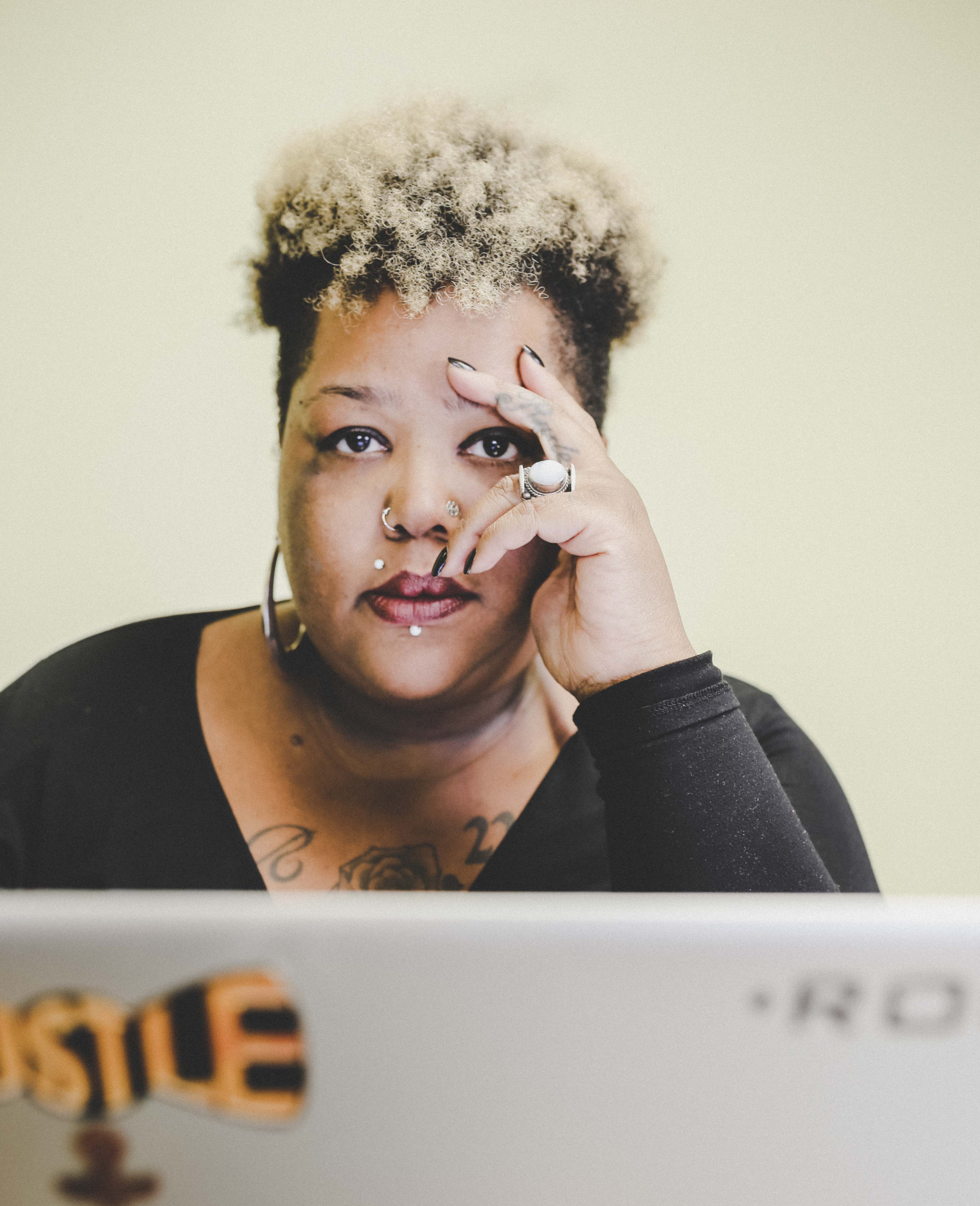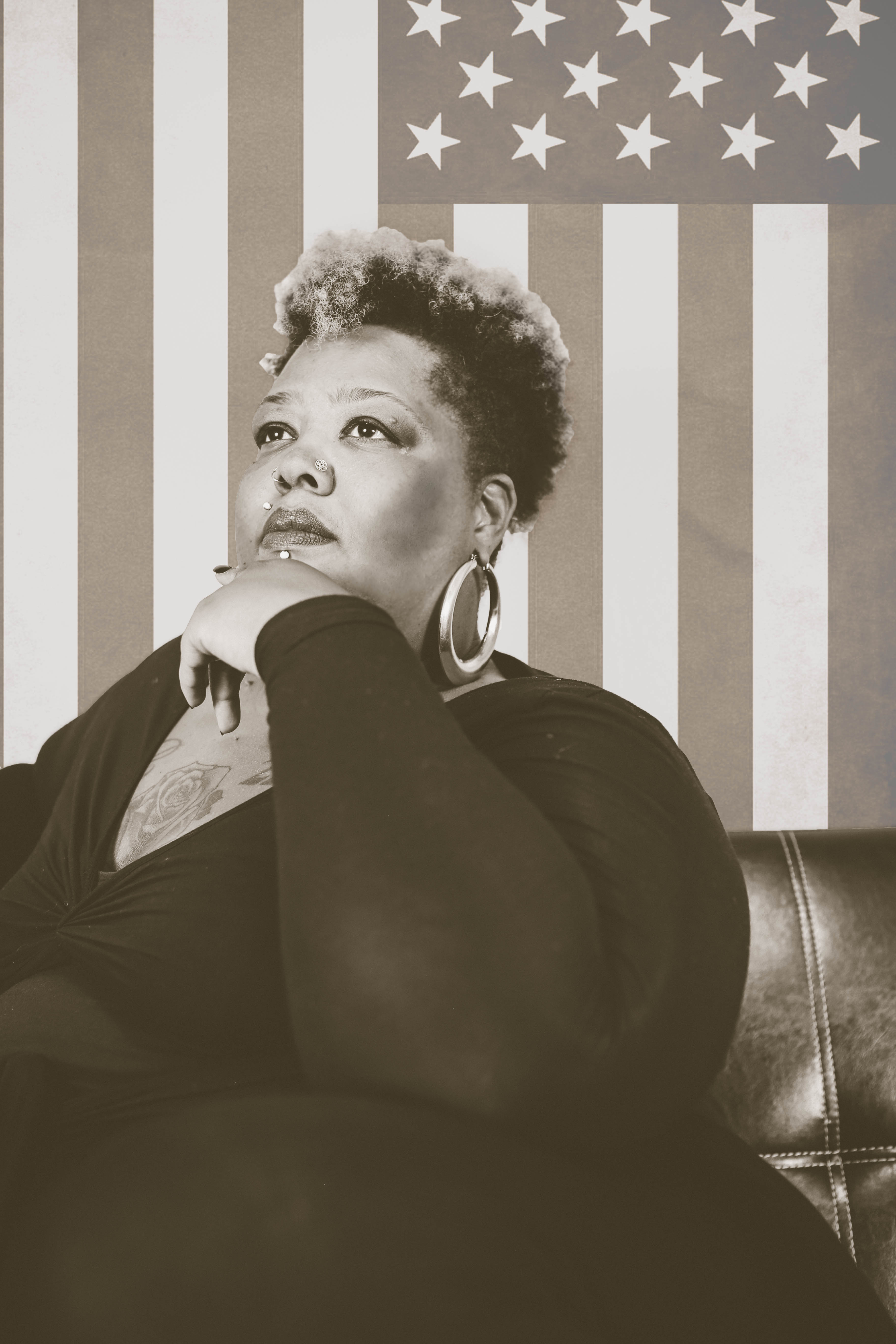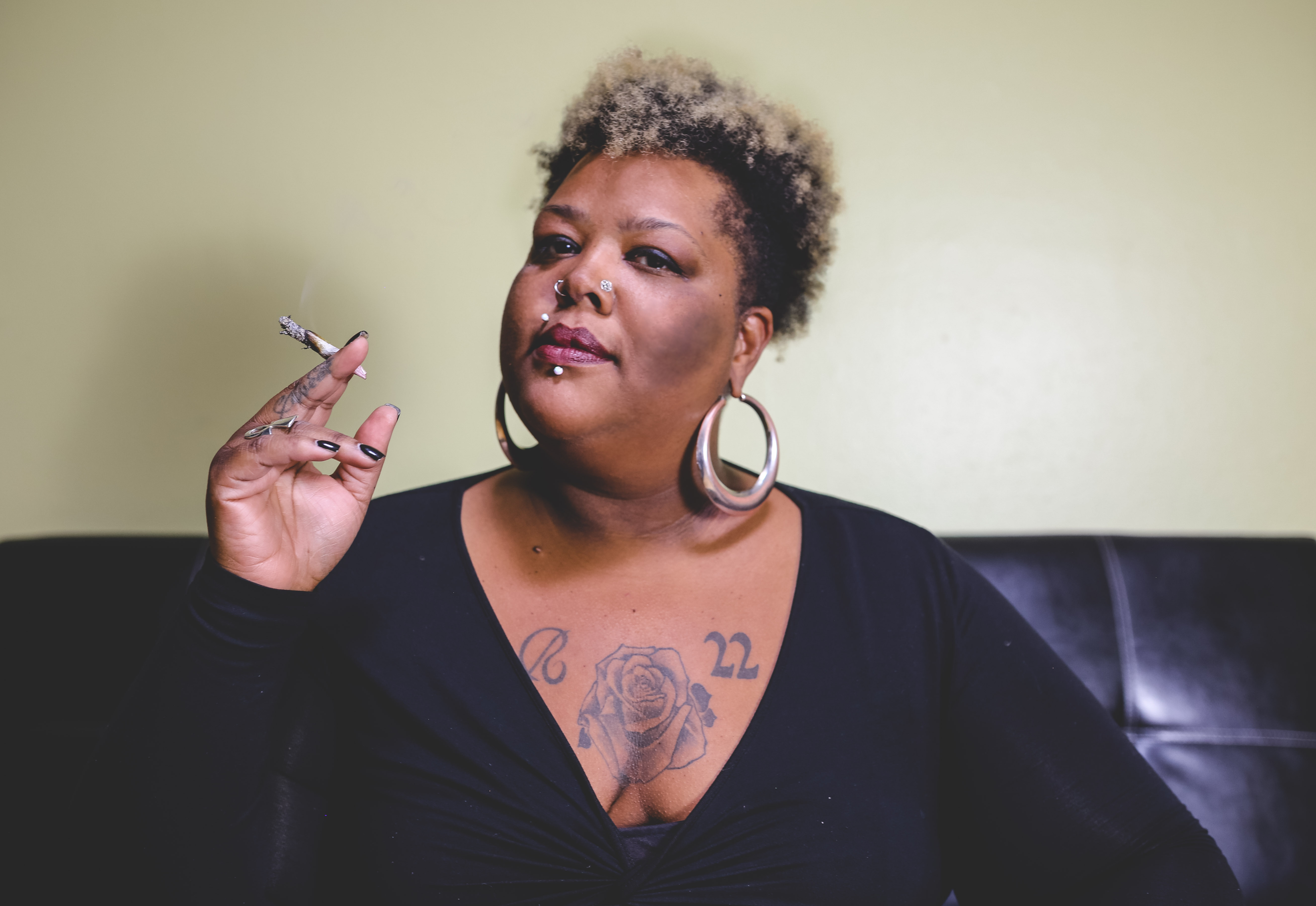If you give a shit about Denver hip-hop, you know who Ru Johnson is — or at least you should. The 32-year-old self-proclaimed power broker is at the heart of the city’s hip-hop scene, and if something dope pertaining to the culture is popping off in the 303 area code, best believe it’s got Johnson’s name on it.
Through the work of her creative consulting firm, Roux Black, Johnson simply makes cool things happen here in Denver. This includes having one-on-ones with local rappers to give them business advice, teaching workshops such as How to Kill the Game 101 or putting on new events like Test Kitchen. Throughout all of them, the desire and necessity to give Denver hip-hop a space to flourish is at the core of Johnson’s work. As someone who has always been “absolutely in love” with hip-hop, she saw a platform for it to succeed was missing in Denver. In her work as a writer for Westword, 303 Magazine and now the Denver Post, as well as being a consumer of the scene, Johnson found that the playing field wasn’t even.
“Part of it was that a lot these artists didn’t necessarily have the tools and resources to put their art at the level that it needs to be,” she said. “The other part is that there weren’t enough entities that cared enough to have hip-hop considered as a viable form of expression. So, I was able to create Roux Black out of a need to elevate the platform of hip-hop music in this city.”
Johnson’s commitment to authenticity is what makes her work and passion so buyable. If you’ve been graced with the opportunity to scroll through her Twitter feed, consider yourself lucky. It’s a display of Johnson’s hilarious, confident and true-to-self personality that makes her someone you want to both work with and for. She defines “her own standards of professionalism” which allow her to be wholeheartedly her own at all times and still run shit, a genius of social branding that makes phrases like, “Miguel was so good that if I had hair on my vagina it would be standing up right now” (which Johnson remembers posting on Facebook) acceptable, entertaining and attractive.
“I’m confident in how truly talented I am,” she said. “I’m confident in the fact that my clients see what kind of influence I have because I’m not just actually running around on the internet with my dick in my hand, everything is intentional.”
When asked what keeps her in Denver, Johnson told us it’s “the soil.” She believes “this is a place where you can really grow things.” Even though Johnson didn’t move here until she was in her twenties, she feels like she grew up here. “A lot of people didn’t really know me so I had the opportunity to throw shit at the wall and see if it stuck,” she said. Denver offered distance from family ties and connections that would’ve restricted her from the independent pursuit of success she’s had here. “The only fears I would’ve had around elevation would’ve existed with this continual desire to please my family — and none of that existed here.”
Denver also became home to Johnson in the name of hardship. “My mom died very shortly after the time that I moved here, and I wasn’t able to really process going through that living back on the east coast,” she said. “I felt like I needed to be somewhere where I could really process that individually without being under the umbrella of my family’s grief…because I processed it so much here, this became the place where I stayed.”
Johnson relates her personal growth in Denver to the growth of hip-hop here. “We’re seeing independent artists do things that are very similar to what kept me here — throwing things at the wall and seeing what sticks, and then being able to strategize,” she said. “We’re in uncharted territory right now because there’s so much opportunity coming to the city.”
Even with her queen prowess, Johnson is no stranger to the difficulty of being a woman in the hip-hop world. Rap music is known to have a misogynistic nature, which can become exhausting to the women who fall in love with it — but Johnson explains that the balance of it comes in setting boundaries for oneself in what you will and will not deal with. “I’m a womanist, I’m a feminist and I don’t want you to legislate my pussy,” she said. “I want to do my own thing in this world as a woman, most certainly, but I know where my power exists even in those rough spaces of rap.”
Unfortunately, some men in the game didn’t take well to that power, particularly when Johnson stepped back from the writing to focus more on production and the broader scale at Roux Black. After being upset that she didn’t promote his recent music video, an artist took to the internet to shame Johnson and create a ground for abuse, harassment and even death threats directed at her. Understandably, it was a tough hit to Johnson’s spirit and ego.
“I thought because I had worked so hard for so many of these people and I believed in so many of these rappers and I took their little fingerprint raps and treated them like fucking Basquiat and legitimized them … I thought I was sort of immune to the kind of abuse that other people received, and that [was] not true,” she said. This kind of abuse takes the objective lyrics and sexualization in hip-hop a step further than we’re used to. “It can be abusive when freedom in the art is used to oppress other people,” said Johnson. “When it’s not oppressing me, I can handle it — but I’m talking about these dudes telling me they want to kill me. That’s a problem.”
Still, Johnson entered back into the scene with open arms, but also with hesitancy in who she continues to fuck with. “I’m tough enough to handle it,” she said. “But I won’t accept abuse from some schmuck rapper. Not at all.” Needless to say, Denver is lucky to have someone with the passion and vision of Johnson who feels her destiny is to elevate an entire culture. Hip-hop here has undoubtedly been on the rise, and as it continues to grow we have to continue in the tradition of the culture and give credit where it’s due. Johnson deserves credit, and she does it for all the right reasons. “I do this because I love this, first and foremost. I love music, I love observing culture,” she said. “I believe that art is the revolution, and witnessing that is my job.”





